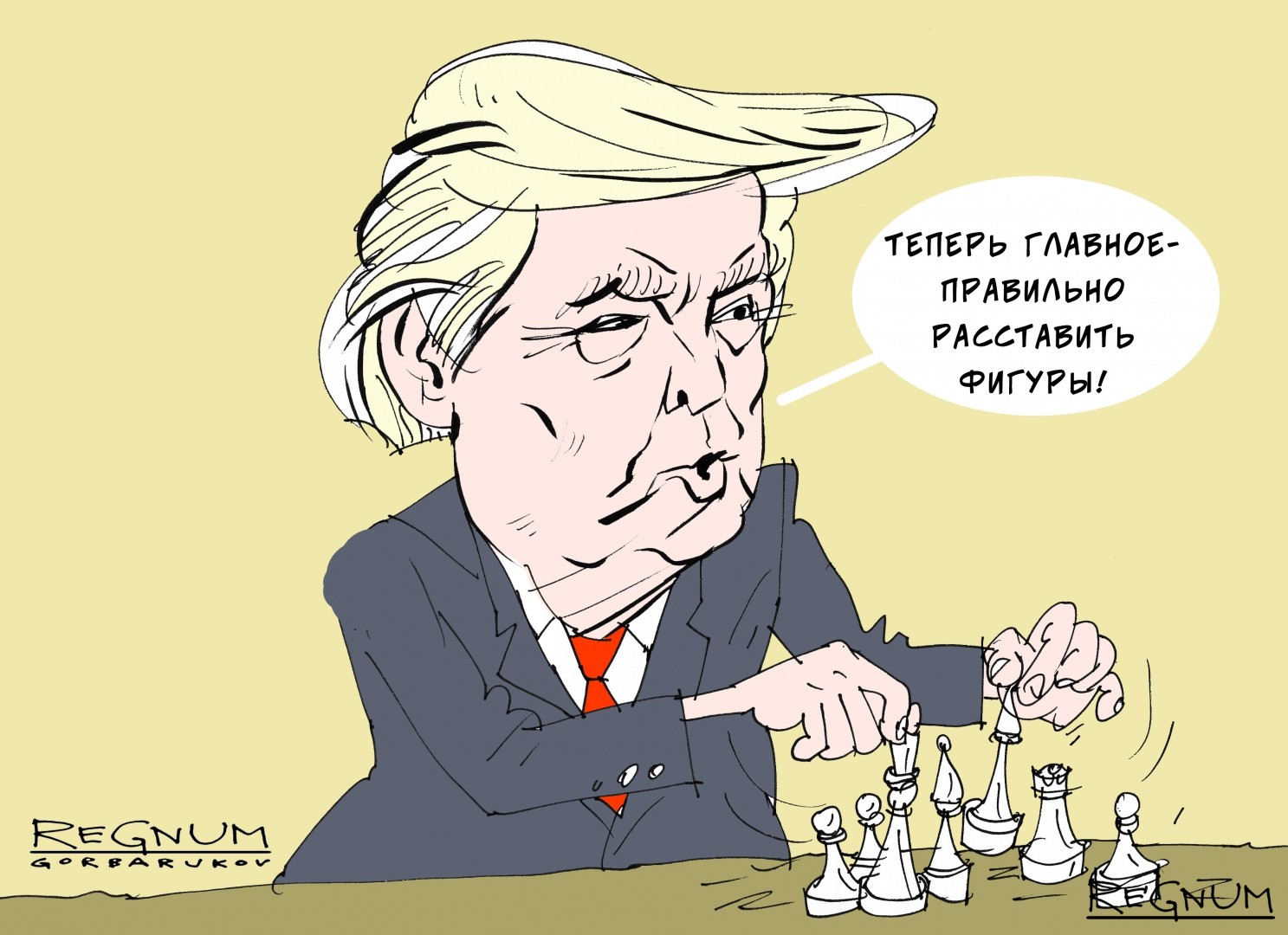Russian commentators are celebrating Donald Trump’s decision to pull American forces from Syria, with some calling it the US president’s early Christmas gift to Vladimir Putin and others referring to it as the work of Russia’s “Agent Donald.”
But perhaps the most devastating Moscow commentary comes from Petr Akopov of Vzglyad who entitles his essay about the most recent news coming out of Washington, “Trump’s Policy Completely Corresponds to Russia’s National Interests.”
Trump, Akopov writes, “is an opponent of foreign intervention and games at playing ‘world gendarme,’ and this was one of his main election slogans,” the Moscow journalist says. “By keeping his promises and bringing American soldiers home, he increases his already not bad chances to be re-elected in 2020.”
That of course means, he continues, that the globalist majority of the American establishment and indeed all the Atlanticist super-nationalist elites will have to deal with [Trump] until 2024.” It is one thing to block him for two years; it is quite another to block him for six.
“What is Trump doing?” Akopov asks rhetorically. “He is thinking strategically: globalization of the Anglo-Saxon kind has failed. On the one hand, the US doesn’t have the strength” to maintain it. And on the other, “the growth of alternative historical centers of force like China, Russia, India and the Islamic world” preclude it.
Trump and those who support him may be called “American nationalists, anti-globalists, conservatives, anti-interventionists, neo-isolationists or traditionalists,” he says. “The terms aren’t precise and to a large extent they do not have any importance in and of themselves.”
“What is most important,” Akopov continues, “is that Trump loves the US … He really wants to ‘make America great again,’ that is, to strengthen its economy, society and statehood. In order that it can not only withstand the storms ahead … but also preserve its place as the first country in the world” not as a policeman but as a model of advanced society.
It is for this reason, the Vzglyad writer says, that those who do not understand his strategy hate him. And those who hate him also “demonize Vladimir Putin because Russia is so interfering with their plans.” Thus, they have come up with their failed effort to “find the nonexistent Russian traces in [Trump’s] victory.”
The only thing that the opponents of Trump have been able to do is to block his meetings with Putin. “This, of course, is no small thing because there is nothing more horrific for the globalists than the very probability of a coming together and coordination of the actions of their two main enemies. The internal enemy is Trump; the external enemy is Putin.”
It is clear to them and to everyone else that “the goals of the two presidents coincide on the main things: both want to make their countries as strong as possible and as sovereign as possible and fully independent.” They view the world in far more similar ways “than it seems” to many.
“And the main thing which unites them is that the world must be run by national states and not by super-national structures.”
Of course, Akopov says, even if the two are able to form “a new world order,” there will be tensions and competition between them. “But there will be an understanding of the spheres of the vital interests of each other and a tough agreement about this or that regional or world problems and a profitable cooperation on this or that economic projects.”
“On the path to such a world order, much remains to be done. But Donald Trump with all his strengths is moving America in that direction. He may fail, although this would be a catastrophe for the US, they may kill him, but while he does what he does, this completely corresponds to the national interests of Russia.”
Further Reading:
- Trump has done more than collude with Putin: he’s helped Kremlin leader destroy post-1945 world
- Trump’s challenging of broad consensus on Crimea will lead to a broader war, Skobov says
- Putin and Trump aren’t conservatives: they’re reactionaries, Golts says
- Trump’s best friends
- Trump’s summit with Putin constitutes an ‘unprecedented act of betrayal,’ Eidman says
- Trump’s statement on Crimea can lead to serious consequences, says American analyst





